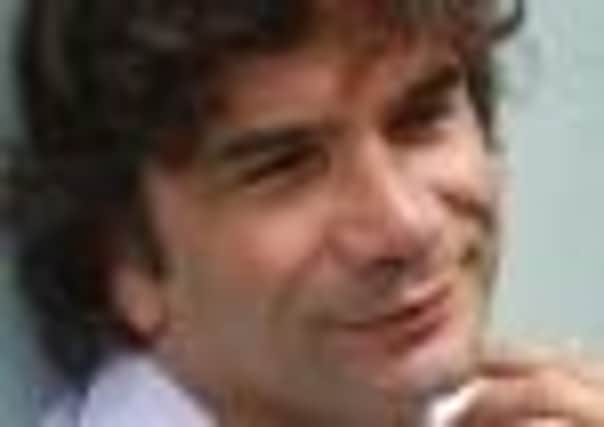Literature and sport are perfect match


As a reader and a sports fan, I’m always looking for good sports writing that I can get my intellectual teeth into.
Of course, newspapers like the Yorkshire Post do a very good job of writing about a whole range of sport from the region but I’m keen on what they call these days “longform” sports writing, massive articles or whole books about sport and its relationship to the world around it.
Advertisement
Hide AdAdvertisement
Hide AdI remember with affection lost and forgotten magazines from the 1990’s like The New Ball, a big fat book-sized publication dedicated to good cricket writing, and Perfect Pitch, a magazine that tried to do the same for football.
And maybe that’s why I chose Anthony Clavane’s book Promised Land as one of my books of the year when I was asked onto the Simon Mayo show on Radio 2 at the end of 2010.
At the time I said that my wife, who’s not a huge football fan, was captivated by it – by the prose, by the sentences and by the emotion; and, in the end, maybe that’s all you want from a book: prose, sentences and emotion, in that order.
I’d worked with Anthony on a project to get young people interested in writing about football at the Arvon Foundation’s centres in Devon and Yorkshire with schools from Plymouth and Barnsley and I knew that he was passionately committed to the idea of mixing literature and sport, as I am. After all, they’re both fine examples of human endeavour, although you might not always think so when you’re watching a dull nil-nil draw on a December Tuesday night at Oakwell.
Advertisement
Hide AdAdvertisement
Hide AdThe hardback edition of Promised Land that I first read on endless train journeys across the country is subtitled “The Reinvention of Leeds United” and it’s a fan’s-eye view of the club’s journey over the last fifty years to the edge of the European Cup and the edge of bankruptcy. It’s also about growing up Jewish in a city that prided itself on its modernism at the same time as it celebrated its cultural and artistic heritage.
Interestingly, the paperback edition is subtitled A Northern Love Song, and perhaps that’s nearer to the truth.
I’ll be asking Anthony about the change of subtitles when we chat together about the book at Waterstone’s in Leeds next week. In the end, I reckon his book really is a love song to The North, and all the contradictions and little irritations about the region that make us love it even more. I’ll ask him to define that love, of course.
Anthony’s also passionate about the literary heritage of Leeds, from well-known writers like Alan Bennett and Keith Waterhouse and David Peace to less-celebrated writers like Bernard Hare, whose book Urban Grimshaw and the Shed Crew was celebrated as a classic when it was published but which has since fallen below the radar.
Advertisement
Hide AdAdvertisement
Hide AdAnthony himself is now part of that heritage. He was born in Leeds and after going to university he became a journalist, originally on arts and culture but eventually moving to sport, which he writes about for the Sunday Mirror, covering World Cups and Olympics as well as endless, endless football matches. He’s strongly opinionated, which is a good thing. He believes that sport can be written about in the kind of sparkling prose that’s often devoted to nature writing or to fiction, and he’s sure that Leeds can become a centre of new writing in the same way as London or New York.
I’ll be asking him about all these things when we meet next Thursday.
I might slip in a cheeky question about what he wrote about that game last year when Barnsley beat Leeds 5-2. Mind you, perhaps I’d better not: next Wednesday’s an away match for me!
Anthony Clavane and Ian McMillan in Conversation, Leeds Waterstone’s, Albion Street, July 7, 7pm. 0113 2444588.
Journey to promised land
Advertisement
Hide AdAdvertisement
Hide AdAnthony Clavane’s Promised Land tells the story of the ups and downs of Leeds United, but it also tells a much wider story.
Clavane uses the changing fortunes of the city’s club to chart the similar rises and falls of the city itself. It looks at the fortunes of the city’s Jewish immigrant population.
In May it was named as the Football book of the Year at the British Sports Books Awards, which put it in the running for Sports Book of the Year – which it won this month.
As well as being about sport, Jewish immigration and Leeds, the book is also a paean to northern working class writers.